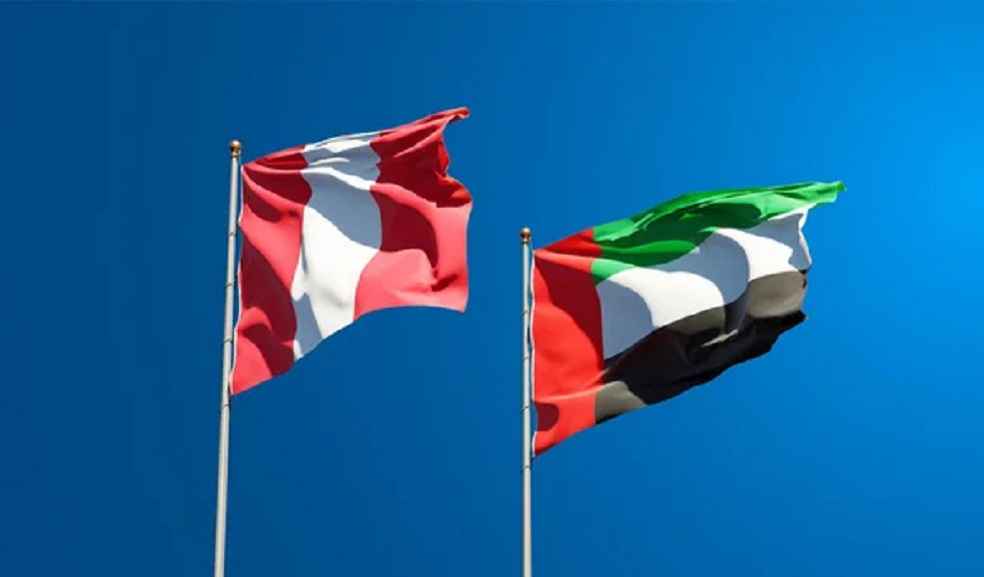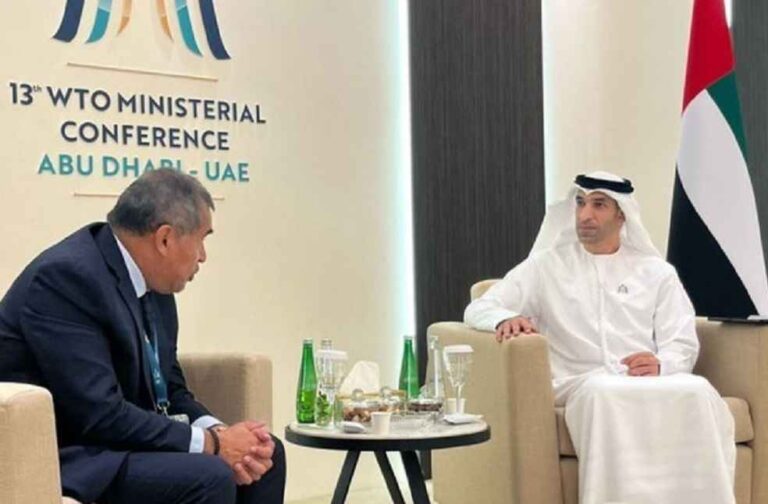The United Arab Emirates (UAE) and Peru have declared the initiation of negotiations for a free trade agreement, a strategic development announced at a World Trade Organization meeting hosted in Abu Dhabi. This trade talks, following Peru’s recent decision to establish an embassy within the UAE, underscores a burgeoning relationship underscored by previous pacts, such as last year’s aviation agreement.
This potential free trade pact represents a pioneering venture for Peru into the Middle East and North Africa market, and for the UAE, an inaugural foray into the Americas. Bilateral trade between the nations surpassed $1 billion last year, with Peru exporting $1.03 billion worth of goods, predominantly gold, to the UAE, and importing $44 million in goods from the Gulf nation.
Peru’s administration anticipates that a free trade agreement will significantly boost its export volumes. Given the UAE’s reliance on imports for over 90 percent of its food consumption, Peru sees a lucrative opportunity to supply a portion of this demand.

As the leading global exporter of grapes and a major supplier of avocados and blueberries, alongside significant contributions in the fishing sector, including fish for human consumption, fishmeal, and fish oil, Peru is well-positioned to enhance its export footprint. Additionally, prospects for exporting garments and manufactured goods are promising.
On the other hand, Emirati exports to Peru primarily consist of petroleum products and a selection of manufactured items, such as lighting components. DP World, a logistics giant based in the UAE, has made substantial investments in Peru, exceeding $700 million since 2018, by operating crucial port facilities.
This free trade agreement could serve as a gateway for both nations to access larger markets. Peru currently holds 19 such agreements, including partnerships with China, the European Union, and the United States, and is in the process of negotiating further deals, notably with India and, until recently, Turkey.

Conversely, the UAE, typically negotiating trade agreements through the Gulf Cooperation Council (GCC), has embarked on expanding its trade horizons, evidenced by recent agreements with South Korea and Pakistan, and ongoing negotiations with Britain, China, and Japan. The GCC’s engagement with Latin America and the Caribbean has been minimal, focusing primarily on non-petroleum sectors, yet this trend is evolving.
Initial steps towards a trade agreement with the Southern Common Market, encompassing Argentina, Brazil, Paraguay, and Uruguay, reflect this shift. Furthermore, the UAE’s strengthening relationship with Guyana, underscored by the announcement of an embassy in Georgetown, signals a deepening engagement with South America.
IMEX SECTOR | Paris Clash: French Farmers Protest Ukrainian Chicken Imports



